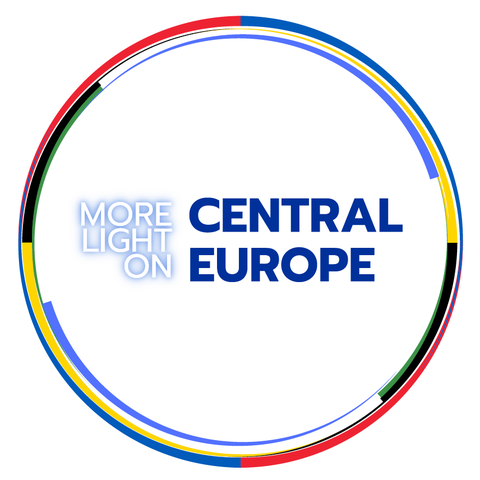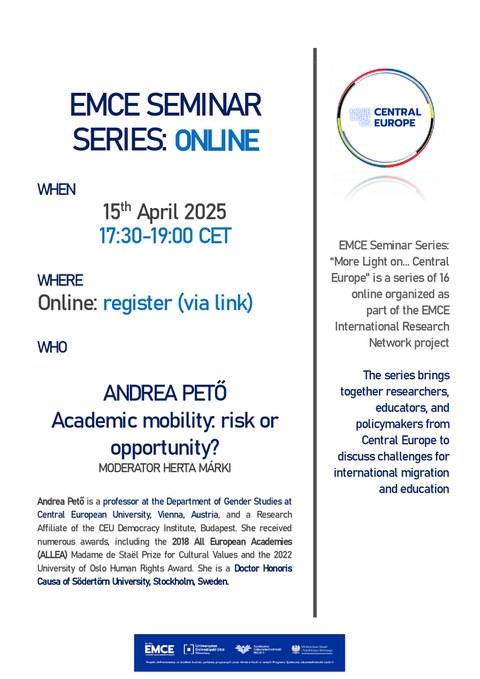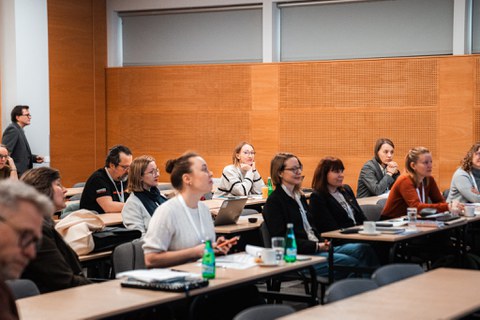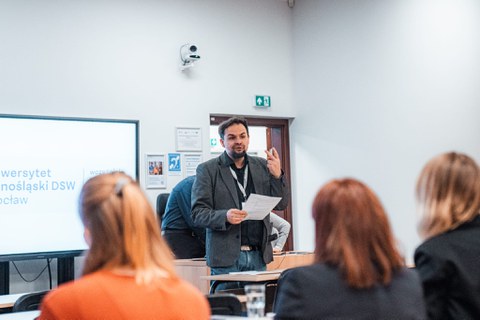More Light on Central Europe
An Online Lecture Series on Migration and Educational Research in Central Europe
Under the motto "More Light on Central Europe," the freely accessible online lecture series of the EMCE network will begin in March. EMCE (Education and Migration in Central Europe) brings together researchers from Poland, the Czech Republic, Hungary, Ukraine, and Germany with the goal of bridging migration and educational research, with a particular focus on Central and Eastern Europe.
What to Expect:
-
16 lectures featuring international speakers from academia and practice
-
Interdisciplinary discussions on key issues in migration and education research
-
Insights into current challenges in the Central and Eastern European region
-
Free participation for all interested parties
-
Language: English
When and where?
🗓 Every third Tuesday of the month
⏰5:30 PM – 7:00 PM (CET)
🌐Register now by clicking the link: https://tinyurl.com/EMCEregistration
First Events
Invitation to the First EMCE Seminar Series Event
📅 March 19, 2025
🕠 5:30-7:00 PM CET
🌍 Online (Teams)
🗣️ "Reinventing Solidarity" – A Discussion with David Bernet
🎬 David Bernet is an award-winning documentary filmmaker, writer, and director based in Berlin. He studied Comparative Literature and Philosophy before embarking on a career in filmmaking. His documentaries focus on political and social issues, with a deep interest in democracy, resistance, and collective action. His notable films include:
- Democracy (2015) – an acclaimed documentary that follows the process of creating data protection laws in the European Union, highlighting the complexities of political decision-making.
- Raising Resistance (2011) – a compelling film exploring the struggles of small farmers in Paraguay against the expansion of industrial agriculture.
Bernet’s latest documentary, Solidarity (set to premiere in spring 2025), critically examines both the bright and dark sides of solidarity in modern societies, questioning its role in shaping political movements, social justice, interactions, and grassroots learning initiatives in developing collective consciousness and civic engagement
👩💼 Moderator: Dr. Monika Popow (Polish Naval Academy, Gdynia)
📩 Register now by clicking the link: https://tinyurl.com/EMCEregistration
Dear colleagues and friends,
We are pleased to invite you to the second episode of the EMCE Seminar Series: “More Light on… Central Europe”, an international initiative focused on education and migration in Central Europe.
🗓 Date: April 15, 2025
🕔 Time: 17:30–19:00 CET
💻 Location: Online (registration link below)
🎙 Speaker: Andrea Pető
🎤 Moderator: Herta Márki
Talk title: Academic mobility: risk or opportunity?
Andrea Pető is a Professor at the Department of Gender Studies at Central European University in Vienna and Research Affiliate at the CEU Democracy Institute in Budapest. She is the recipient of several prestigious awards, including the 2018 Madame de Staël Prize for Cultural Values (ALLEA) and the 2022 University of Oslo Human Rights Award.
In her talk, Professor Pető will explore the Erasmus model of academic exchange through four key lenses: institutional, pedagogical, socio-cultural, and economic. She will critically examine how academic mobility—especially in its digital and hybrid formats—can either exacerbate inequalities or open up new opportunities. The presentation will reflect on structural issues such as gender imbalance, credit recognition gaps, and the uneven distribution of mobility resources. Practical recommendations will be offered on how to build more inclusive and resilient mobility programs for the future.
📌 Register here: https://tinyurl.com/EMCEregistration
We hope to see you there and look forward to an inspiring conversation!
📅 May 20, 2025 – Olena Vasylchenko
🔹 Multilingualism in Schools: Insights from Research and Practice (in Austria)
📅 June 17, 2025 – Daryna Dvornichenko
🔹 Displaced Ukrainian Universities as Spaces of Resilience
Wir laden Sie herzlich zur nächsten Sitzung der EMCE-Seminarreihe „More Light on… Central Europe“ ein. Dieses Seminar widmet sich den Herausforderungen, mit denen ukrainische Jugendliche in Deutschland konfrontiert sind, wenn sie sich in neuen schulischen Umgebungen zurechtfinden und mit psychischen Belastungen umgehen müssen.
📅 Dienstag, 16. September 2025
🕠 17:30–19:00 Uhr (MEZ)
🗣️ Sprache: Englisch
💻 Online (Registrierungslink unten)
Thema des Vortrags: Vom Krieg ins Klassenzimmer: Unterstützung ukrainischer Jugendlicher bei Anpassungsschwierigkeiten und psychischen Belastungen in Deutschland
Referentin: Luna Grossell
Moderation: Kristina Kocyba
Über den Vortrag: Dr. Luna Grosselli wird Einblicke in ihre Arbeit mit ukrainischen geflüchteten Kindern und Jugendlichen geben und deren Herausforderungen bei Anpassung und psychischer Gesundheit beleuchten. Sie wird aufzeigen, wie Psychotherapie – insbesondere die Prävention von Suizidalität und Depressionen bei Jugendlichen – diese jungen Menschen unterstützen kann und welche Rolle Pädagog:innen und Fachkräfte dabei spielen, Resilienz und Integration zu fördern.
Über die Referentin: Dr. Grosselli ist approbierte kognitiv-verhaltenstherapeutische Psychotherapeutin für Kinder, Jugendliche und Erwachsene. Am Child and Family Mental Health Lab der TU Dresden forscht sie zu Psychotherapie und psychischer Gesundheit von Jugendlichen. Sie leitet aktuell Projekte zur Unterstützung ukrainischer geflüchteter Familien in Deutschland und organisiert Trainings in Interpersoneller Psychotherapie für ukrainische Fachkräfte im Bereich psychische Gesundheit.
📌 Hier anmelden: https://tinyurl.com/EMCEregistration
Nehmen Sie an dieser wichtigen Diskussion zu Bildung, Migration und psychischer Gesundheit in Mitteleuropa teil.
For updates on upcoming seminars, follow us on Facebook: EMCE Seminar Series Facebook Page
Organization & Coordination
- EMCE Network Coordination 2025: Dr. Kristina Kocyba (Chair of School Pedagogy: School Research, TU Dresden)
- Event organization: Dr. hab. Paweł Rudnicki (University of Lower Silesia, Wrocław)
|
The Chair of School Pedagogy: School Research invites you to join in the exchange and looks forward to your participation! |
|---|
Report on the Opening Conference in Wrocław
On February 6-7, 2025, the first international conference of the EMCE network took place at the DSW University of Lower Silesia in Wrocław. The acronym EMCE stands for Education and Migration in Central Europe. Under the title "More Light on Central Europe," scholars and activists from Poland, the Czech Republic, Hungary, Ukraine, Germany, and Canada gathered to present and discuss research, projects, and initiatives.
Main Topic: Education and Migration in Central and Eastern Europe
The declared goal of the EMCE network is to bring together migration and educational research, with a special focus on Central and Eastern Europe. Countries like Poland and Hungary have historically been shaped by migration, multilingualism, and multiculturalism, despite national narratives. With regard to the school system, the flight from Ukraine is currently of utmost relevance, raising questions - similar to Germany - about inclusive schooling, transnational educational trajectories, and teacher professionalization.
Interdisciplinary Exchange and International Collaboration
The conference provided a space for interdisciplinary exchange, reflecting the complexity of the topics discussed.
The event opened with an online keynote by Prof. Dr. Aysun Doğmuş (TU Berlin) on "Blank Spaces – A Reflection on Migration and Racism as a Subject in the Educational Discourse in Germany."
This was followed by four panel sessions:
- Migration Policy (and its Subversion) in Central and Eastern Europe
- Inclusion in Education & Digitalization
- Inclusion in Education & Language(s)
- Presentation of Individual Initiatives, including projects for children with special educational needs who are refugees.
Inevitably, the scientific analyses and, in some cases, biographical descriptions of exiled female scientists left the audience not only more informed, but also emotionalized. In this context, projects that embody solidarity, hope and a focus on solutions despite the most adverse circumstances - such as the Real School in Budapest, which is committed to sustainability and supporting Ukrainian refugees, or the Union Ukrainian's School in Wrocław, which offers teachers and pupils a second home - were given more time at the end.
There was also valuable input from the Chair of School Pedagogy: School Research, with Dr. Olha Ihnatyeva using the example of the DAAD Ukraine Digital initiative to illustrate how educational opportunities can be maintained even in times of war. Dr. Kristina Kocyba and Josephine Herz located empirical findings from teacher training in Dresden in current paradigms for teacher professionalization in the context of school and forced migration.
The full conference program can be accessed here.




